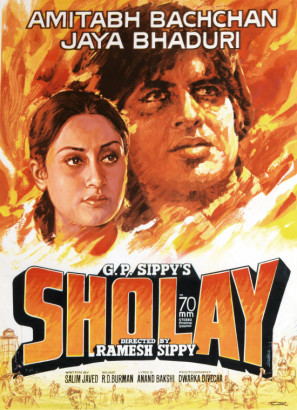BY SUGANDHA RAWAL
New Delhi–Amitabh Bachchans iconic dialogues, rendered in the rich baritone, chronicle his journey as well as the evolution of modern-day Bollywood cinema.
Bachchan has made a transition from Bollywood’s “Angry Young Man” to the industry’s “Shahenshah” over the years, and he continues to bring a majestic aura and towering charisma with the power of his baritone.
But his tryst with showbiz started with several setbacks and rejections. There were people who pushed him off, with some saying he doesn’t have the right voice to be an actor. Some derided him because he was too lanky in appearance.
Yet, Bachchan used all these traits – particularly his voice power – to scale the heights.
“We all know how he has fought all the struggles, how he used the very tool, which was told to be his shortcoming, and how he made it with his talent and hard work. His voice which was told to be his shortcoming has attained iconic stature. The baritone of his voice is not only loved by his fans but is his signature style, which is loved by movie lovers across the country and the globe,” film and trade expert Girish Johar told IANS.
In the same vein, trade expert Rajesh Thadani said: “His voice is a major asset and he has used it for his benefit. It is not just the dialogues but delivery too… It is not what you say but the way you say it which makes a difference and he has used that well to his advantage.”
With the cine icon turning 77 on October 11, IANS takes a look at some of his iconic dialogues. These are not just lines, but they define Big B’s journey as a peerless actor and Bollywood’s most dazzling superstar.
* “Rishte mein toh hum tumhare baap lagte hain, naam hai Shahenshah”
The dialogue from the 1988 film “Shahenshah” not only establishes Bachchan’s character in the film as a vigilante, but also left his stamp in Bollywood. The line is evergreen as people continue to use it in conversations, parties, jokes and social gatherings.
* “Hum jahan khade ho jaate hain, line wahi se shuru hoti hain”
It’s a dialogue from the 1981 film “Kaalia”, which received maximum of whistles and claps in cinema halls. It continues to be a fan favourite and has found a way into people’s daily life, who stand in queues on a day-to day basis.
* “I can talk English, I can walk English, I can laugh English because English is very phunny language.”
Big B won hearts as a drunk man trying to flaunt his English-speaking skills in the 1982 film “Namak Halaal”. The dialogue is not only a fan favourite, but has been enacted several times by stand-up comedians over the years, and continues to spread joy.
* “Don ka intezar toh 11 mulkon ki police kar rahi hai. Lekin Soniya, ek baat samajh lo, Don ko pakadna mushkil hi nahi, namumkin hai”.
The iconic dialogue from the 1978 movie “Don” defines the underworld thriller. Such is the power of the line that it was retained in the 2006 remake that had Shah Rukh Khan leading the project.
* “Moochhe ho to Nathulal jaise warna na ho”
Amitabh mouths this line in “Sharaabi” (1984) to infuse comical element to the story. It made people laugh then, and it makes people smile today. In fact, the line is now also used by brands that are into male grooming, and youngsters who love to flaunt a moustache.
* “Aaj mere paas bangla hai, gaadi hai, bank balance hai, kya hai tumhare paas?”
It’s been 40 years since the release of the “Deewaar”, when fans witnessed Amitabh Bachchan trying to deal with an emotional conflict with this line for the first time. The dialogue has travelled well with time – it has spawned jokes and memes and a twist of spoof. Yet, it probably remains Bachchan’s most dramatic line.
“Main aaj bhi feke hue paise nai uthata” is another dialogue from “Deewar” that continues to resonate with the masses, irrespective of the age or gender. The film, in fact, had several gems for Bachchan.
“Jao pehle uss aadmi ka sign lekar aao jisne mere haath pe ye likh diya tha… uske baad mere bhai tum jis kagaz pe kahoge main uspe sign kar doonga” is another dialogue in the film that personified Big B’s Angry Young Man image. And who can forget “Aaj khush toh bahut hoge tum, haain?”.
* “Abey buddha hoga tera baap”
The dialogue in “Bbuddah Hoga Terra Baap” is widely popular despite the film’s no-show. It seemed true to Big B’s personality at that point of his career when the film released in 2011 (he was 69 then) , and it defines a man who continues to defy age with his work.
We cannot, of course, gloss over several others:
* “Poora naam, Vijay Dinanath Chauhan, baap ka naam, Dinanath Chauhan, maa ka naam, Suhasini Chauhan, gaon Mandwa, umar chhattis saal” from (“Agneepath”; 1990)
* “Jab tak baithne ko na kaha jaaye sharafat se khade raho. Yeh police station hai tumhare baap ka ghar nahi” from (“Zanjeer”; 1973)
* “Agar apni maa ka doodh piya hai to saamne aa” (“Laawaris”; 1981)
* “Parampara, pratishtha, anushasan. Yeh iss gurukul ke teen stambh hai. Yeh woh aadarsh hain jinse hum aapka aanewaala kal banaate hain” (“Mohabbatein”; 2000)
* “These boys must realise…no ka matlab no hota hai. Usey bolnewali ladki koi parichit ho, friend ho, girlfriend ho, koi sex worker ho ya aapki apni biwi hi kyun na ho, ‘no means ‘no’ and when someone says so, you stop” (“Pink”; 2016)
* “Aulaad nalaayak nikle toh usse bhool jaana chahiye… sirf uska bachpan yaad rakhna chahiye” (“102 Not Out”; 2018) (IANS)













